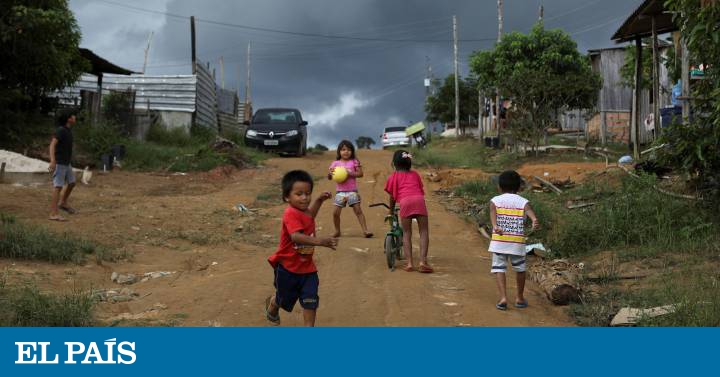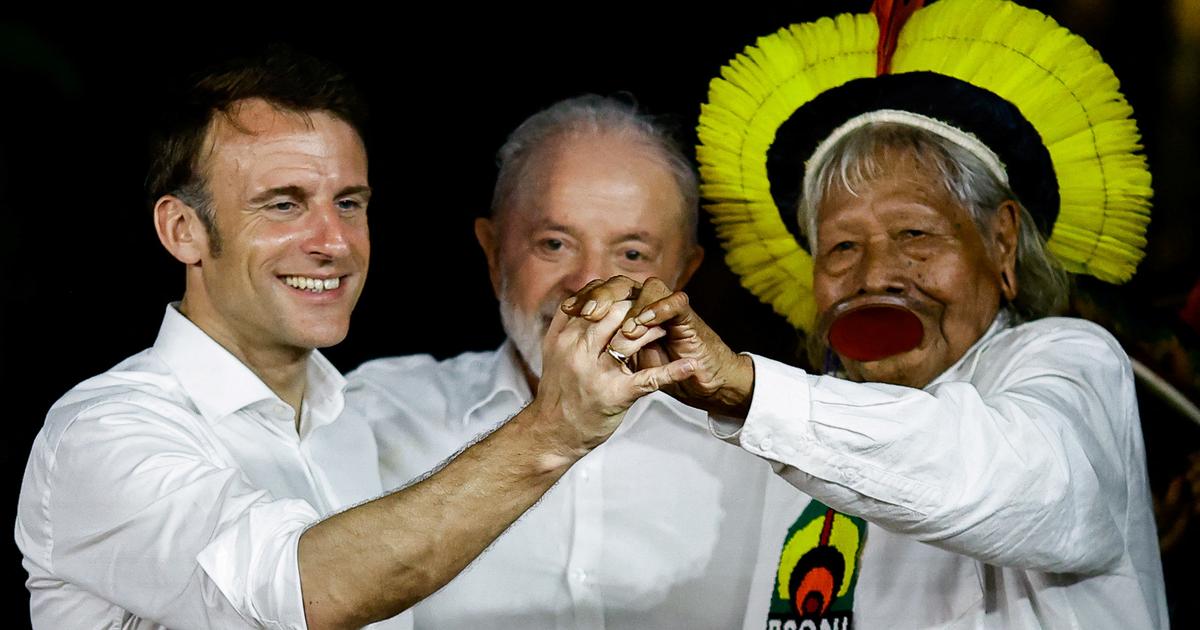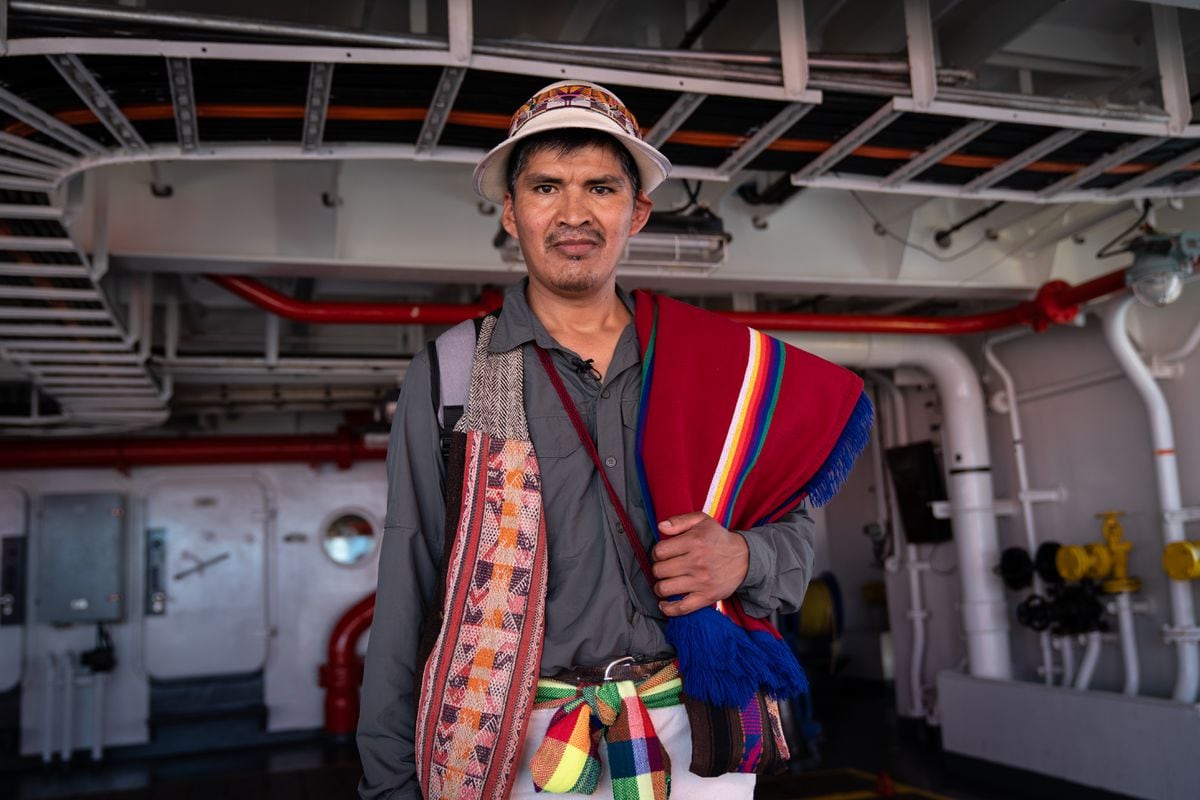The Bribri people in the rain forests of Costa Rica emerged from isolation only in recent decades. This is why we are often called "the hidden people." As the deadly new coronavirus takes hold in Costa Rica and other tropical forest countries, we risk becoming invisible again. And we are not alone.
MORE INFORMATION
- The coronavirus is on the heels of the native peoples
- The double threat to the peoples of the Amazon
- Indigenous peoples of Brazil face the pandemic with fear and their own rules
In Africa, Latin America and Southeast Asia, governments have begun allocating resources to combat the terrifying pandemic, but some indigenous leaders say the authorities are ignoring the peoples and our needs, while we are also preparing to fight this sickness. If communities collapse under the weight of the current global health crisis, all citizens of this warming planet will also suffer. Studies conclusively demonstrate that indigenous peoples are by far the best stewards of the planet's forest carbon and biodiversity.
Like other communities in Mesoamerica and around the world, the peoples of Costa Rica have moved quickly to cancel events and cut off access to our territories from abroad. Through radio and WhatsApp messages in local languages, we reach remote communities with lessons on how to protect yourself. We are building food, water and hand sanitizer reserves.
In a much broader scenario, as a member of a global alliance of indigenous territorial organizations, I know that such efforts will not suffice. My colleagues and I believe that covid-19 will hit communities harder. Our health systems are weaker than those outside our territories. We have traditional healers, but health workers are rare.
If communities collapse under the weight of the current global health crisis, all citizens of this warming planet will also suffer
Members of my village must travel 90 kilometers to reach a hospital, while several forest communities in Latin America lack access not only to basic medical care, but also to clean water and electricity. Like anyone with access to news, we feel anxious. Some relief would come if our governments helped us strengthen the measures that we have already implemented.
We also want the authorities of our countries to prevent government agencies and companies from invading our lands. As the pandemic expands, we are seeing signs that legal and illegal actors are increasing invasions of indigenous territories, taking advantage of the chaos. Our brothers and sisters in Brazil and other Amazon countries report lax enforcement of laws and increased activities that have led to the destruction of the environment and the deaths of many activists in all tropical forest nations, including Costa Rica.
Despite the challenges we share with other communities, indigenous Costa Ricans are likely to do better than our allies in other countries. Since 1977, when I was nine years old, our national government has recognized the rights of our peoples. We have developed our own systems of government and manage our traditional lands in a sustainable way.
We have a voice in the decisions that affect us, since the government includes leaders in the creation of Costa Rica's economic plans and its emergency plan. And Geyner Blanco, an indigenous leader, now serves as part of the government's central command operations team managing the pandemic.
But covid-19 has introduced a threat like nothing we've seen since colonial Europe came to our shores. Even in Costa Rica we are in need of help. We join with our colleagues around the world to plead with governments to support our efforts to protect our communities and care for those who become ill. And we demand that our national leaders take the following concrete actions:
1. Share accurate and timely information with the communities about the pandemic, and ensure that the information is distributed in native languages.
2. Include leaders in the development and implementation of emergency plans to access food, water, personal protective equipment and, eventually, treatments and vaccines.
3. Provide translators and transportation to obtain medical services.
4. Intensify the application of laws that protect our territories from external invasions.
5. Involve us in any decision that affects us and our territories, whether the goal is to create a new protected area, address a pandemic, or reduce carbon emissions.
For centuries of conquest and disease, indigenous peoples have too often remained invisible to our governments; Too often our contributions have been ignored, despite a growing body of science suggesting that high-level conservation groups and governments should partner with us.
Like anyone with access to news, we feel anxious. Some relief would come if our governments helped us strengthen the measures we have already implemented
In Costa Rica, the bribri not only produce world-class cocoa, we have knowledge and a way of life that keeps our forests standing and our environment in ecological harmony. We must continue to survive, along with our fellow citizens, until science brings us treatments and a new vaccine. For now, we need our national governments to help us protect our lands and ourselves against human and viral agents that devastate health and habitat.
And when solutions emerge from a laboratory somewhere in the world, as they will, indigenous peoples will not be as hidden as the Bribri once were. Instead, we will continue to fight for better lives for our communities and the world. And we will know that by saving ourselves our countries will help save something much bigger.
Levi Sucre Romero is a Bribri indigenous man from Costa Rica, Coordinator of the Mesoamerican Alliance of Peoples and Forests and member of the Global Alliance of Territorial Communities.
You can follow FUTURE PLANET on Twitter and Facebook and Instagram, and subscribe here to our newsletter.



/cloudfront-eu-central-1.images.arcpublishing.com/prisa/DNL7HO6Q7JEGXAADDZOU7HVF2I.jpg)

/cloudfront-eu-central-1.images.arcpublishing.com/prisa/MG6G7DJUBNBLRNE2DSTK4WZYTY.jpg)
/cloudfront-eu-central-1.images.arcpublishing.com/prisa/5BXUKKEUHRB45CXJXXPGMWBHYM.jpg)
/cloudfront-eu-central-1.images.arcpublishing.com/prisa/L64PMGMKXNDP5EHGZTYIAK3UTU.jpg)

